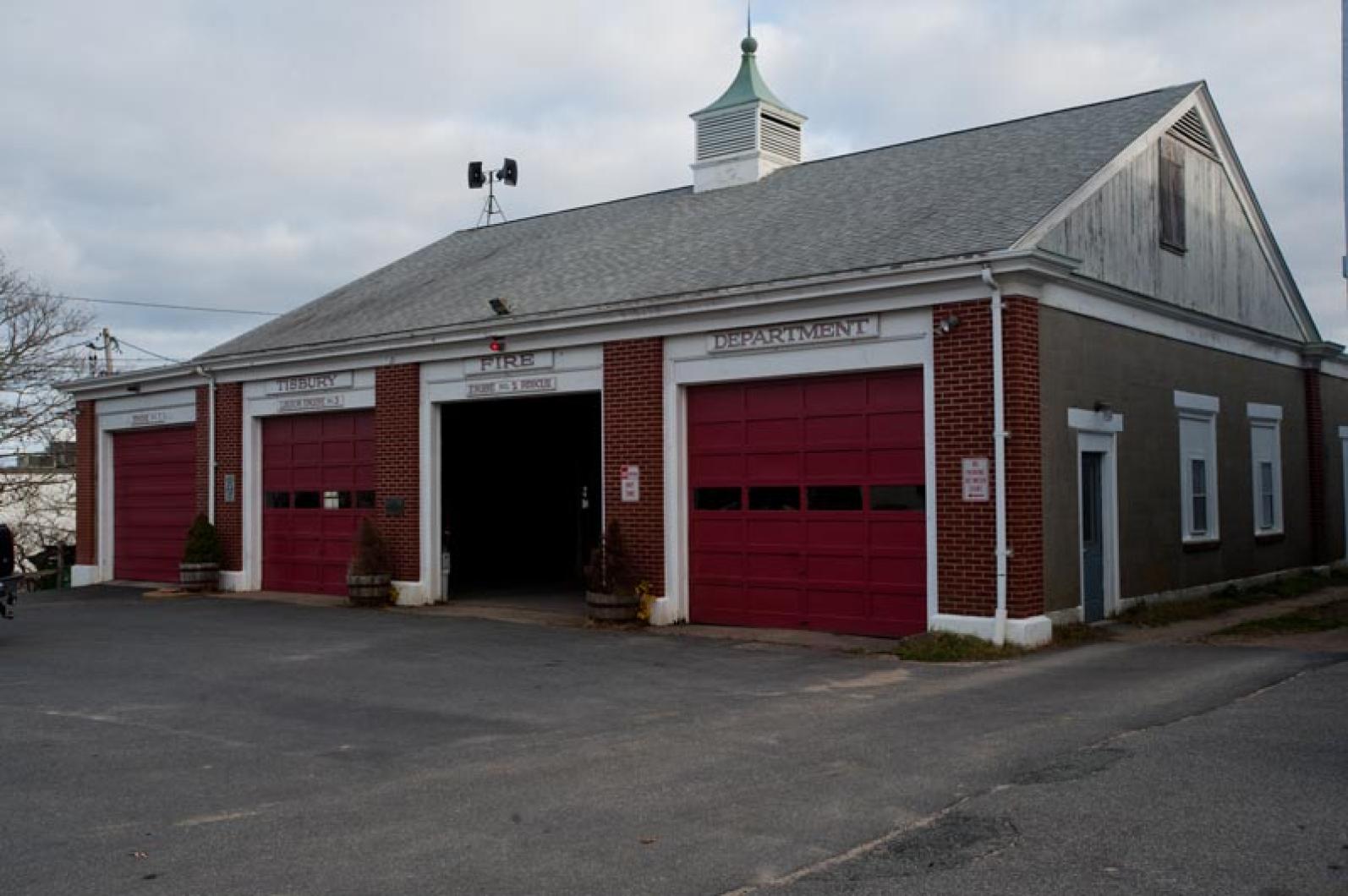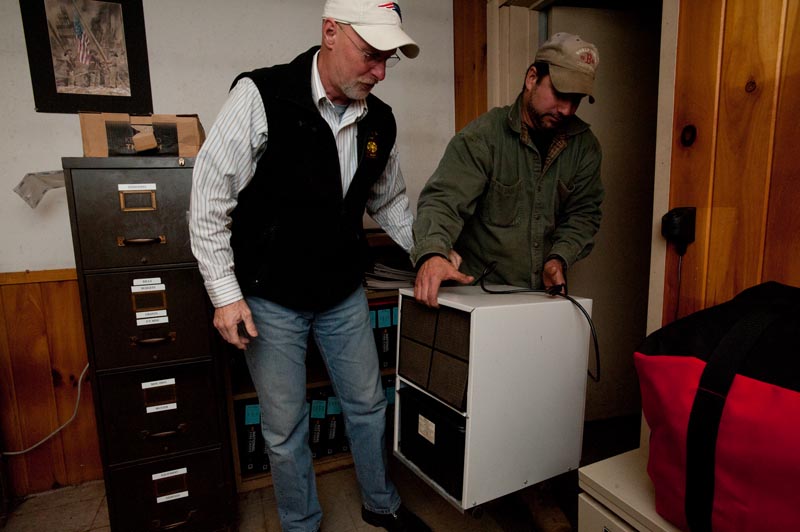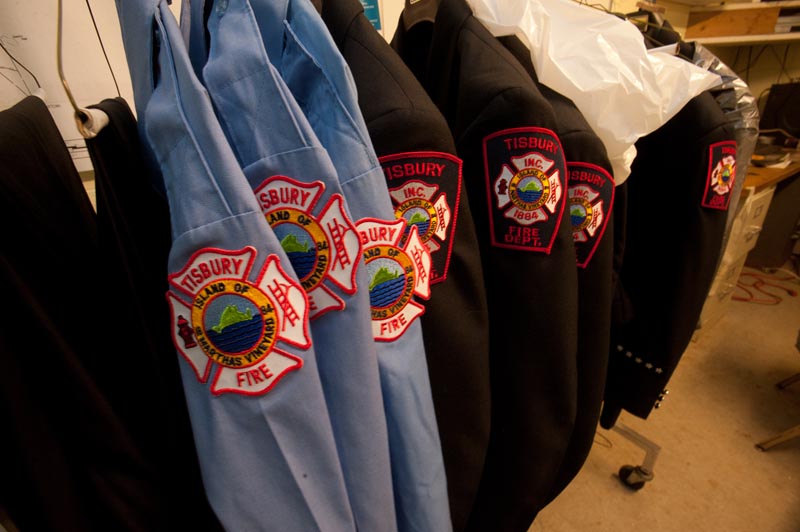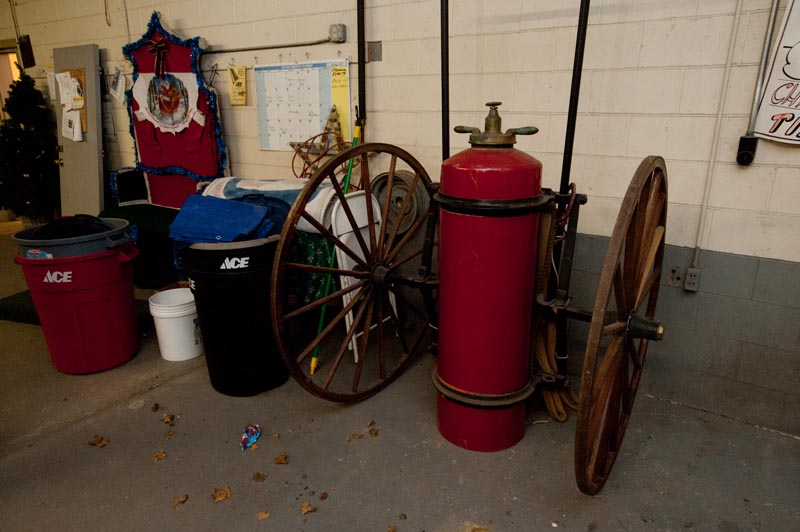In February of 1958, the Tisbury fire department rushed in freshly polished trucks to extinguish the first fire call from the new station on Beach street.
“A flaring kitchen range at the home of Mrs. Clara Baptiste was responsible for a run by Tisbury firemen early Saturday morning,” the Gazette reported. “The crews put an extra special polish on the apparatus in preparation for the open house to be held during the weekend. Fortunately nothing occurred to mar the polish or diminish the glitter.”
Last week the fire department made its last run from the fire station. For pizza.
The department officially moved into the emergency services facility on West Spring street earlier in the fall, but 20 firefighters met Tuesday evening to clear out the old fire station before demolition, originally set for the first week of December but now pushed several weeks until a contract is signed.
Pizza from Porto was protocol, as the men hauled out extra hoses, cleaning equipment, and the annual Christmas tree from the building where they, and generations before them, spent Sunday breakfasts, days with Santa Claus, and long hours between fires at the Mansion House and Cafe Moxie.
“How can you beat the location,” said Darren Welch, a firefighter. “If we had a fire, we’d go next door to Cumberland Farms to get something to eat. Or the pizza shop would bring something over.”
“It was always the center of town,” recalled Alan Fortes. As a kid Mr. Fortes would come with his father to the fire department, or would be playing with friends at Veterans Park nearby.
“When that horn went off, we’d race to come see what was going on,” he said.
And after long-fought fires, Chief John Schilling remembers residents walking over to the station to show their gratitude with baked goods.
“People would come by from the community thanking us,” the chief said. “You are in the heart of Vineyard Haven. Everything that happened — you were right in the middle of it.”
But the building is past its prime, all agreed. Mold grows on the ceiling and water leaks through the windows in the office that former Chief Richard Clark, now retired, paneled himself. Still, the building seeps with memories. The bulky wooden desk is filled with small bylaw booklets from the 1950s, and the bathroom closet stocks town fire records from the 1920s, handwritten in cursive.
Around the office are photographs of the fire department through the years.
“Look at these guys,” Chief Schilling said, pointing to a 1980 black and white photograph. “No helmets, nothing reflective, and what protection do those boots give you. But that was back then.”
There is a more recent team picture from the annual Islandwide firefighters’ muster. Mr. Welch guessed the picture is from 1990.
“That was when I broke my finger,” said Mr. Fortes.
“That’s when you had hair!” Chief Schilling told Nick Fullin, current captain of the legion pumper.
Mr. Fullin joined the department 31 years ago, fresh out of high school. As a kid he spent Sundays riding in the truck with assistant chief Allan Davey, his next door neighbor.
“Like every kid when they see the big truck, I’d gawk and awe at it,” he said. “It was such a privilege.”
He said the days with Santa Claus at the fire station are some of his fondest memories at the station.
“We’d see kids from when they were real little grow up. Now we see the kids of their kids,” Mr. Fullin said.
The men agreed that the building, while creating tight quarters for six trucks in three bays, had a certain coziness for the weekly Sunday breakfasts.
“It makes it a pleasure to walk into the house on Sunday morning and have everybody sitting around the table together, it’s like a family dinner,” Chief Schilling said.
Sunday breakfasts will continue and Santa will make his annual ride in Engine 3 but from a different location now on.
The Beach street firehouse now sits empty, its meeting room decorated only with a few empty pizza boxes.
“Generations of people have come through this building that did not get any press or print and they contributed to the quality of life on Martha’s Vineyard,” Chief Schilling said. “They made contributions to their community without any gratitude other than their own personal sense of well-being. It’s sad, but it’s time.”











Comments (9)
Comments
Comment policy »